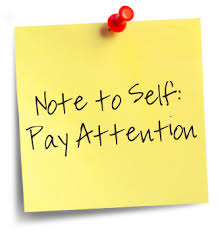More about legitimate suffering and needless suffering. Almost all of my misery is needless. That is, it’s mostly contrived, based on my assumptions about what should or should not be happening. By misery, I mean anger, frustration, boredom, restlessness, worry, angst, and all the other emotional states that make my days longer and probably shorten my life. Most of my misery is the daily, garden-variety stuff that throws me off for a few minutes. But it can get intense and affect everything for days.
 I do not consider myself a miserable person. In fact, I see myself as a pretty positive, happy person. But I create a lot of misery for myself, and probably for others. Just this morning, on my way to Starbucks, I ended up a behind a white Ford F150 at a busy intersection. He did not take a left turn when there was a break in the traffic, and I launched into a “What the hell are you waiting for” kind of rant. I was the only one who heard it; I am the only one who suffered from it. I did manage to stop myself after a few seconds and say, “Well, there you go, creating unnecessary misery for yourself.” I do it all the time.
I do not consider myself a miserable person. In fact, I see myself as a pretty positive, happy person. But I create a lot of misery for myself, and probably for others. Just this morning, on my way to Starbucks, I ended up a behind a white Ford F150 at a busy intersection. He did not take a left turn when there was a break in the traffic, and I launched into a “What the hell are you waiting for” kind of rant. I was the only one who heard it; I am the only one who suffered from it. I did manage to stop myself after a few seconds and say, “Well, there you go, creating unnecessary misery for yourself.” I do it all the time.
Avoidance is my favorite source of needless misery. A few weeks ago I promised a friend I would do some work for her. It involved remodeling part of her kitchen: tearing out an old cabinet and a bunch of tile, rebuilding the cabinet to some new dimensions, moving a wall outlet, new tile, and a few other things. But the project involves a lot of unknowns. It’s an old kitchen and I would not know how involved the project would be until I start tearing into it. But once I start the demolition, I am at the point of no return.
So I have avoided calling her. I talked myself in and out of starting the project several times. Finally, Wednesday, after a couple of hours mental pacing, I decided I did not need to know everything in advance, that I could call her and talk through the process with her. So I called. I let her know that once I start, her kitchen will be a mess for a few days, that I would not know how much of a mess or how much time until I got started, etc.
She cheerfully said, “That’s fine.” We decided on a starting time, and the work is now underway.
 The needless suffering was the avoidance, the mental pacing and hand wringing of wanting to nail down in advance more than I could reasonably anticipate. I like to plan well, to anticipate as much as possible, to give a good-faith estimate of the work, the time, and the cost. It is quite another thing to dread, avoid, worry, and anticipate disaster before ever putting a pry bar to the wood.
The needless suffering was the avoidance, the mental pacing and hand wringing of wanting to nail down in advance more than I could reasonably anticipate. I like to plan well, to anticipate as much as possible, to give a good-faith estimate of the work, the time, and the cost. It is quite another thing to dread, avoid, worry, and anticipate disaster before ever putting a pry bar to the wood.
So my Lenten task for the coming days is to notice my needless suffering. It’s almost all needless. But I have to see it and call it by name before I can begin to do anything with it.
0 Comments until now
Add your Comment!